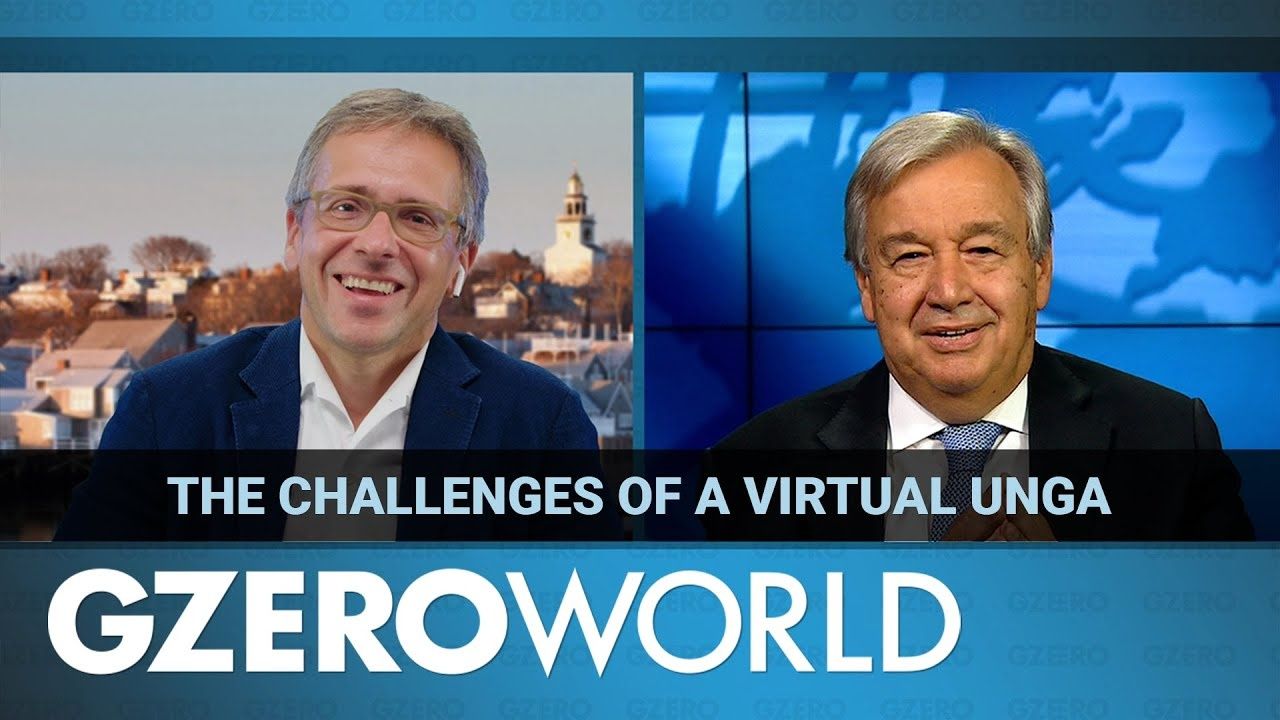GZERO World Clips
Guterres on virtual UNGA: “Huge loss in efficiency” for diplomacy

Gutteres on Virtual UNGA: “Huge Loss in Efficiency” for Diplomacy | GZERO World

The pandemic has forced this year's UN General Assembly to be mostly virtual, but will it prove to be an effective way for world leaders to discuss the critical issues of the moment? Ian Bremmer talks to UN Secretary-General António Guterres about the challenges of diplomacy in the Zoom where it happens. The exchange is part of a wide-ranging interview for GZERO World.
The episode begins airing nationally in the US on public television this Friday, September 18. Check local listings.
As expected, the Supreme Court struck down the bulk of Donald Trump's sweeping “Liberation Day” tariffs as illegal … and almost nothing changed.
Chris, an Army veteran, started his Walmart journey over 25 years ago as an hourly associate. Today, he manages a Distribution Center and serves as a mentor, helping others navigate their own paths to success. At Walmart, associates have the opportunity to take advantage of the pathways, perks, and pay that come with the job — with or without a college degree. In fact, more than 75% of Walmart management started as hourly associates. Learn more about how over 130,000 associates were promoted into roles of greater responsibility and higher pay in FY25.
Somewhere in the Donbas region, Ukrainian soldier Artem Bondarenko says he hasn’t slept through the night in months as he defends Eastern Ukraine.
In the latest episode of Vladimir Putin and Xi Jinping's hit wellness podcast This Authoritarian Life, we learn how positive communication patterns can break negative cycles in our relationships -- especially our relationships with Iran, Syria, Venezuela, and Cuba. #PUPPETREGIME